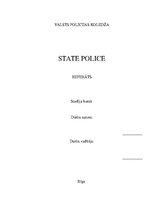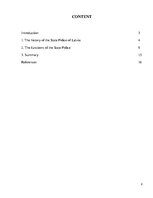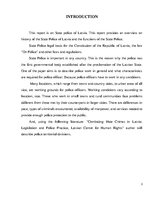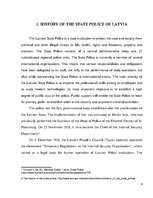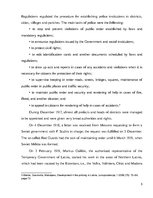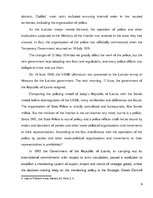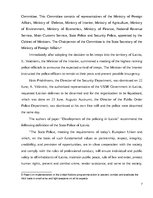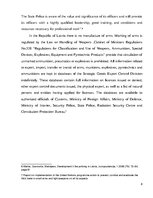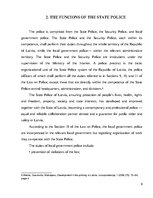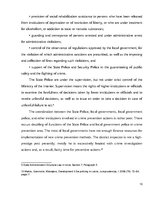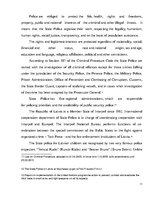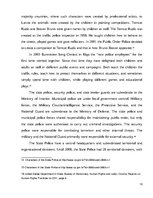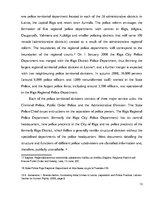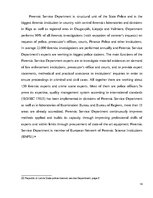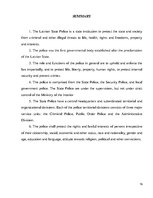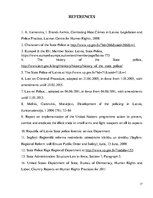-
State Police
| Nr. | Chapter | Page. |
| Introduction | 3 | |
| 1. | The history of the State Police of Latvia | 4 |
| 2. | The functions of the State Police | 9 |
| 3. | Summary | 15 |
| References | 16 |
SUMMARY
1. The Latvian State Police is a state institution to protect the state and society from criminal and other illegal threats to life, health, rights and freedoms, property and interests.
2. The police was the first governmental body established after the proclamation of the Latvian State.
3. The role and functions of the police in general are to uphold and enforce the law impartially, and to protect life, liberty, property, human rights, to protect internal security and prevent crimes.
4. The police is comprised from the State Police, the Security Police, and local government police. The State Police are under the supervision, but not under strict control of the Ministry of the Interior
5. The State Police have a central headquarters and subordinated territorial and organizational divisions. Each of the police territorial divisions consists of three major service units: the Criminal Police, Public Order Police and the Administrative Division.
6. The police shall protect the rights and lawful interests of persons irrespective of their citizenship, social, economic and other status, race and nationality, gender and age, education and language, attitude towards religion, political and other convictions.
…
This report is on State police of Latvia. This report provides an overview on history of the State Police of Latvia and the functions of the State Police. State Police legal basis for the Constitution of the Republic of Latvia, the law "On Police" and other laws and regulations. State Police is important in any country. This is the reason why the police was the first governmental body established after the proclamation of the Latvian State. One of the paper aims is to describe police work in general and what characteristics are required for police officer. Because police officers have to work in any conditions.
Koledžas darbs.

